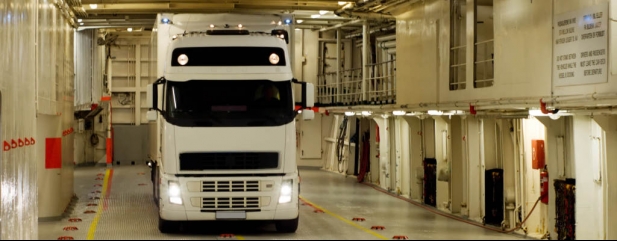Archived article
Please note that tax, investment, pension and ISA rules can change and the information and any views contained in this article may now be inaccurate.
Supply chain issues could mean a bleak winter for UK consumers

There is growing concern among hauliers, freight forwarders and their customers that even with a last-minute Brexit deal the UK’s ‘just in time’ supply chain could face unprecedented disruption from January.
According to the Office for National Statistics (ONS), the UK imported £374 billion of goods from the EU last year, or more than half of total imports, making the bloc our biggest trading partner and generating a £97 billion deficit in traded goods.
However, construction firms are now warning about a lack of supplies of everything from screws to timber and power tools as delays at UK ports hold up deliveries from the continent.
John Newcomb, head of the Builders Merchants Federation, said some products were taking up to four weeks to unload instead of one week. Meanwhile, soaring shipping costs are leading to price rises for many goods.
Shortages are likely to spread to more sectors from 1 January. Leaked Government documents describe the potential for ‘border delays, tariffs and new regulatory barriers/costs (which) may result in disruption to the supply of critical chemicals used in the UK, leading to the disruption of essential services such as food, energy, water and medicine’.
Government rules for EU firms operating in the UK from 1 January are still subject to negotiations but each movement of goods from the EU to the UK is ‘both an export movement for EU authorities and an import movement for UK authorities’, meaning more red tape.
According to the Government’s ‘reasonable worst-case scenario’, the flow of medicines and medical products into the UK could fall between 20% and 40% with ‘potential detrimental impacts’ for human health, food safety, animal welfare and disease control.
Meanwhile, with nearly a third of Britain’s food coming from the EU, supply is likely to see ‘reduced availability, especially of certain fresh products’, while ‘supply of some critical dependencies for the food supply chain could be reduced’. The UK’s Food & Drink Federation recently echoed those fears.
Aside from port congestion, concerns are now growing that EU suppliers may divert their exports to other countries, creating a lack of supply, and EU hauliers could cease to carry out ‘cabotage’ (delivering UK goods from one UK site to another and exporting UK goods to Europe as part of their return journey).
Without a steady supply of goods coming into the country, and without foreign trucks moving essential goods on UK roads, the supply chain from distributors to warehouses to retailers could come under immense strain, leading to shortages, spiraling costs, lower margins, and most likely higher prices to consumers in the long run.
Important information:
These articles are provided by Shares magazine which is published by AJ Bell Media, a part of AJ Bell. Shares is not written by AJ Bell.
Shares is provided for your general information and use and is not a personal recommendation to invest. It is not intended to be relied upon by you in making or not making any investment decisions. The investments referred to in these articles will not be suitable for all investors. If in doubt please seek appropriate independent financial advice.
Investors acting on the information in these articles do so at their own risk and AJ Bell Media and its staff do not accept liability for losses suffered by investors as a result of their investment decisions.
Issue contents
Exchange-Traded Funds
Feature
First-time Investor
Great Ideas
Money Matters
News
- Supply chain issues could mean a bleak winter for UK consumers
- Big Goco shareholder Peter Wood throws weight behind Future tie-up
- Questions still linger over National Grid and SSE dividends
- Key catalysts for markets before the end of 2020
- Flutter Entertainment secures prize US asset
- Fast growing hydrogen stock Ceres gets closer to fulfilling its potential
 magazine
magazine








